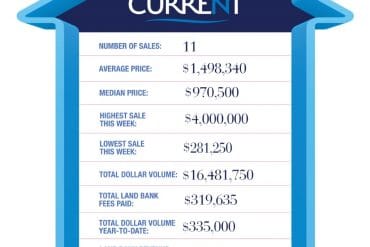To the editor:
The members of Nantucket Together, now a 501(c)4 community association, have been following the warrant article submissions for this year’s town warrant.
After participating in recent Select and Planning Board Public Comment meetings, we believe Articles 42 and 39 are an excellent framework carefully crafted by the town to formally codify short-term rentals (STRs), a common tradition on Nantucket for more than a century. Article 39 is designed to implement sensible, fair regulations that will have a basis in facts and proven data trends, providing a flexible framework for future regulation if needed. Neither of these articles is divisive or discriminatory; they are fair and well-reasoned and we applaud the efforts of Andrew Vorce, town counsel John Giorgio and those others who supported their development.
Further, Nantucket Together fully supports Article 42 because it will put an end to the abuse of the Zoning Board of Appeals (“ZBA”) and legal system, to harass both the town and homeowners, with the resulting extraordinary loss of time and money for all parties, including taxpayers who have to fund Nantucket’s defense. It should also help end the nasty practice of receiving attack support from unrelated third parties that began with the 14 New Mill Street case funded by ACK-Now. As reported on February 11th in a local media source, Cathy Ward is receiving support and funding from ACK-Now in her ongoing neighbor vs. neighbor lawsuit on West Dover Street against the Town (aka town taxpayers), the ZBA and the homeowners.
Though no one likes the additional red tape and cost of regulation, we agree with Nat Lowell that it is an unfortunate sign of the times and nationwide trend. Nantucket Together therefore supports Article 39 to implement a general bylaw to register and regulate STRs, and fund Board of Health staffing through reasonable permit fees. The town recognizes regulations require a data-driven basis to be fair, acceptable and reasonable. That data will be collected during the registration process since it is currently unavailable. The framework created by these articles can be amended at future town meetings if the data supports it and that is the will of the voters.
Citizen Article 43, proposed by Tobias Glidden of ACK-Now, is an attempt to force seasonal homeowners and year round second property owners into the jaws of the vehicle that is currently being abused to obstruct and litigate; the ZBA. Homeowners who rely on rental income to keep their home would be taking a large financial hit while they run the gauntlet of the special permit process through an appeal to the ZBA to reinstate the short-term rentals they were previously doing. This will create an impossible burden on the zoning office and its staff. It could literally take decades to implement at the current rate of ZBA special permit approval (2 per month, with more than 1,500 STR applications to process). It would require additional town expenditures with no targeted funding to support it and would significantly reduce available tourist lodging; wreaking havoc on a tourist based economy. Then, if the ZBA approves an STR, Tobias Glidden’s ACK-Now can continue to support repeated attacks in the form of appeals and expensive litigation, which homeowners can’t afford and which could be better applied by the town for other priorities, like housing. This needs to end. We need to move on.
As to noise, during the Select Board meeting on November 29, 2022, statistics compiled from Police Department records were presented by Andrew Vorce . His analysis showed there were relatively few complaints about short-term rentals (11.8% of the total from May-October 1, 2020) and over 97% of all STRs had no noise complaints filed against them.
We do agree there is a noise problem in denser neighborhoods due to some irresponsible homeowners but would it be simpler and more effective to propose an improved and enforceable (with fines) Noise Bylaw to cover all excessive residential noise?
Nantucket Together also supports the ongoing effort to find a realistic path to more affordable housing, a nationwide problem, amplified on Nantucket. Again, we need a data driven approach that can demonstrate what actions will produce meaningful results. To imply that reducing short-term rentals will provide a one-for-one increase in available affordable housing units is based on anecdotal and wishful information, not factual, analytical data.
And remember, short-term rentals are a new, highly valuable source of tax revenue since July 2019, providing Nantucket with $6 million per year, and growing, which can go towards housing and other priorities.
Nantucket Together supports the passage of Articles 39 and 42 as companion articles and the rejection of Article 43. We recognize the need for sensible, fair and sustainable regulation of STRs in order to preserve all that we love about Nantucket.
Kathy Baird,
Nantucket Together





